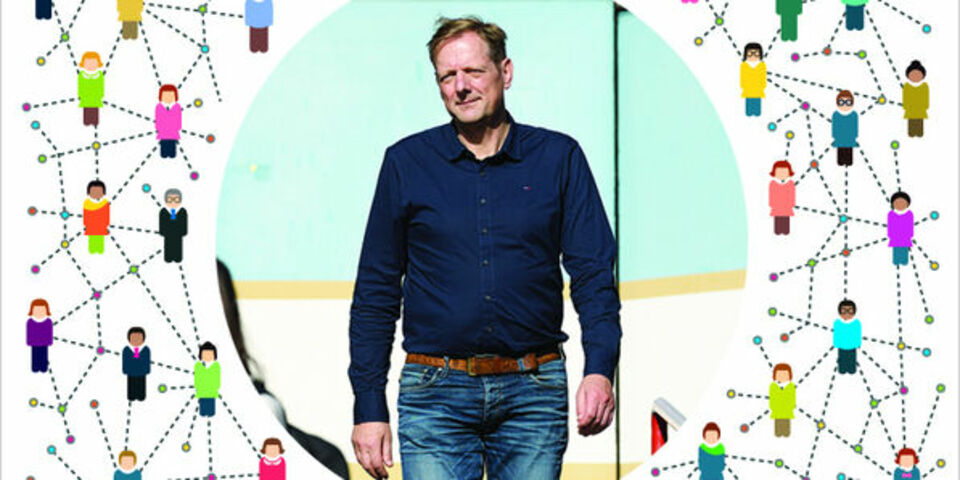Special Diversity | The influence of social networks
Social networks are pretty important: it seems even the acquaintances of friends of your own friends can influence your life. Assistant Professor Gerrit Rooks has been researching this subject for more than twenty years. He knows that with a more diverse network you get more done, and women network differently from men.
The people around you influence you more than you may realize. For example, it turns out that certain characteristics spread through social networks, tells Gerrit Rooks. “Think of things like smoking and obesity, but also happiness and loneliness. The likelihood that you yourself will become obese if obesity occurs in your network can be as high as several dozen percent. And that effect ripples through to the third degree: even contacts of contacts of contacts have an effect on your behavior – though it must be said that influence declines rapidly with every step.”
Rooks, who graduated as a psychologist and gained a PhD in Sociology, also conducts research into the perception of networks: the extent to which people are aware of relationships between others in their network, for example. “In general you can say that women have a greater insight into this than men do. What is striking is that they are particularly good at recognizing influence relationships, while men always think that what women are actually good at is assessing affective relationships – in other words who likes whom.”
Women tend to network differently from men
In any case, women tend to network differently from men, says the assistant professor at the Human Technology Interaction group. “You see that men are more comfortable socializing in groups, while women maintain one-to-one relationships, with all the friction this may entail. I see this pattern repeated when I look at my own son and daughter.”
There are also indications, Rooks chooses his words carefully, that women have more difficulty with ‘instrumental’ networking. Forging contacts for strategic career motives, rather than with purely friendly intentions, is felt by many people to be ‘grubby’, he explains. “Relationships must be authentic, you aren't supposed to profit from them – this is a moral sense that women appear to have more strongly than men.” This may well be one of the reasons – added to the fact that people naturally feel drawn to others who resemble them - why women make poor headway joining the old boys' network. “That need not necessarily be all down to men's malicious intent.”
A cozy friends club or diverse network?
A network like a friends club in which everyone has the same background and interests may well be cozy, but from an economic perspective you are better off having a network that is as diverse as possible, so that it is easy to exploit sources of knowledge and gain entry to a wide range of organizations. The position you occupy in a network partly determines how you perform at work, explains the expert. “People who occupy what is known as a structural gap – here at the university, for example, that would mean being between groups - have been proven to be the most creative. They have access to insights from all kinds of angles. But if you want to launch a startup, for example, then in that case it is important that you have plenty of people around you with whom you have strong bonds and on whom you can rely.”
In his field there are actually two schools of thought, he explains: one that says that you shouldn't have any duplications in your network - one person from the tennis club and from the carnival society is enough, similarly one lawyer and one doctor - while the other school puts the emphasis on cohesion: how well do people in your network know each other. Are you close enough to, say, trust each other with strategic information? “You must strive for real closeness, for strong ties, says this school of thought.”
This article featured in the Cursor special about Diversity.



Discussion